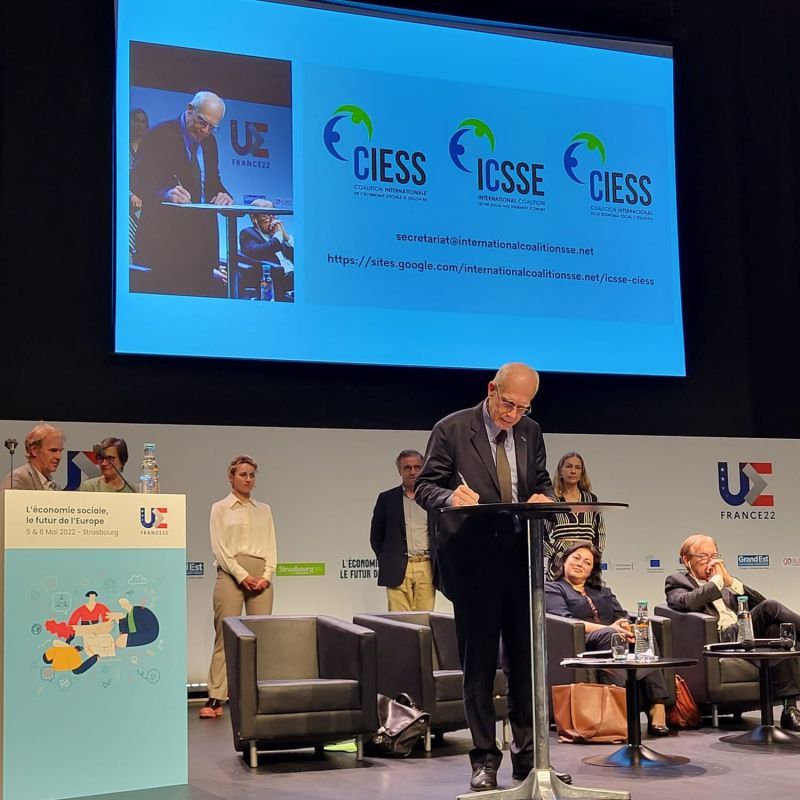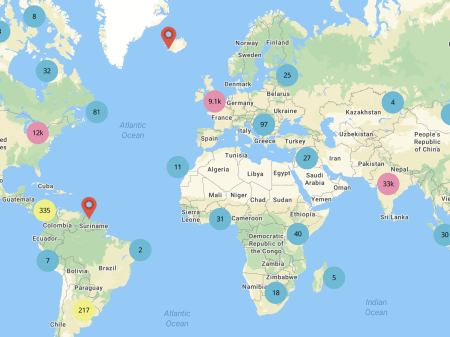
On 6 May 2022, during the Social Economy, the future of Europe event in Strasbourg, France, the International Cooperative Alliance (ICA), the Global Social Economy Forum (GSEF), SSE International Forum (SSEIF), the Association Internationale de la Mutualité (AIM) and the International Cooperative and Mutual Insurance Federation (ICMIF) signed the charter for the International Coalition for the Social and Solidarity Economy (ICSSE).
The ICSSE brings together intercontinental networks of associations, cooperatives, foundations, social enterprises, mutuals, and local and territorial authorities with the aim of deepening advocacy for the recognition of SSE, and to promote SSE as a field of economic activity that must be recognised and that is useful for the implementation of the Sustainable Development Goals.
The Charter states: “We, International Coalition of Social and Solidarity Economy (ICSSE) [...] are committed to joining forces in order to deploy a common voice and actions to make our achievements and resources visible and recognised. Those of the women and men who keep this resilient economy alive, a people-centred economy in an approach that reconciles ecological, social, civic, economic and financial solutions.”
At the Plenary in Strasbourg, ICA Director General, Bruno Roelants, described how the ICSSE sought to “enhance international recognition of the Social and Solidarity Economy”.
“It is also crucial to have an SSE definition adopted at the 2022 International Labour Conference (ILC),” he said. The 110th session of the ILC takes place from 27 May to 11 June 2022, and will include a general discussion on decent work SSE.
The ICSSE Charter has three objectives. It seeks to bring together, strengthen and raise the profile of a community of SSE actors through building a network of organisations and enterprises; strengthening and supporting the work of the the UN Inter-Agency Task Force on Social and Solidarity Economy (UNTFSSE); and consolidating this block of SSE networks and organisations within the relevant and existing broader international initiatives.
It aims to deepen advocacy efforts for the recognition of SSE through lobbying national and local governments on legal frameworks, public policies, and financial support measures; and by working together with national governments and relevant bodies, to promote SSE in the UN (including the adoption of a resolution on SSE at the UN GA); and influence and advocate with international bodies that bring about reforms and action through highlighting, disseminating and making use of the tools and research outcomes developed by the coalition member organisations.
It will also promote the Social and Solidarity Economy as a field of economic activity that must be recognised and is useful for the implementation of SDGs, by convincing UN agencies, funds and programmes to promote and support the inclusion and recognition of SSE; and promoting SSE as a tool for achieving Agenda 2030 and the SDGs and at the world economic summits and other conferences at global and regional level.




